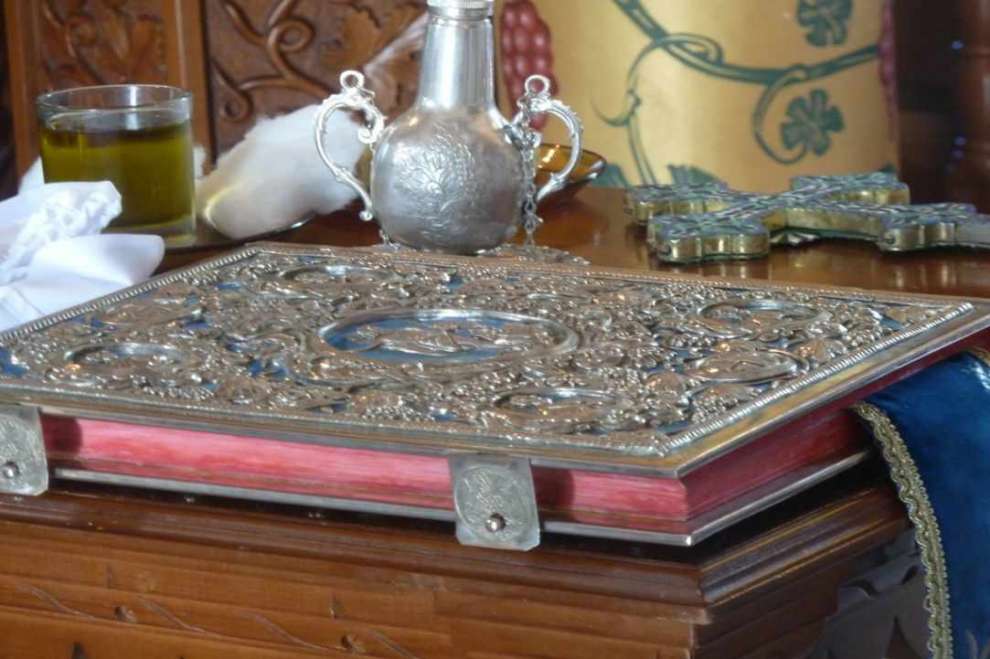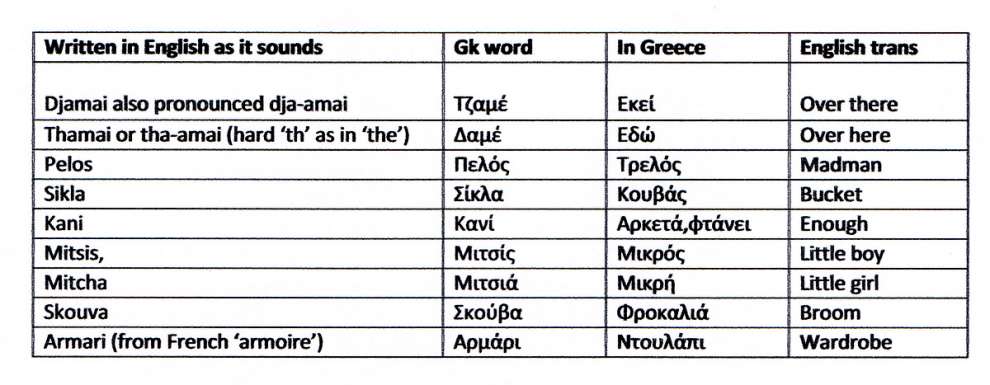The Kalamaras' Guide to Cyprus
Light-hearted observations of an Anglo-Greek
The English call the French “Frogs”. The French call the English “Rosbeef”. Greek Cypriots call a Greek from Greece a “Kalamaras”.
Shortly after moving to Cyprus I was introduced to an accountant, Nikitas Haralambous from Nikitas and Co. “Bill is half Greek,” said my friend. “He speaks Greek”. We continued though to speak in English so that my friend could understand. At one point he handed me his card and I read out his name. “Ah you are a Kalamaras, not from Cyprus,” he said. “Kalami” means “reed” in Greek and Nikitas explained how in former times it was a quill pen. And the “Kalamaras” was the educated Greek who had come from Greece to fill an administrative position. So it’s quite a nice nickname.
Some years back I was at a meeting in London and someone spoke up. Afterwards I asked her what part of Cyprus she was from. She was quite surprised. “You know I am from Cyprus by hearing me speak English?” Greece and Cyprus have a quite distinct difference in pronunciation. Locals can distinguish between accents from the Paphos area and the Eastern part of the island where I live. I have not spent enough time on the West side of the island for my ear to tune in to the differences there.
In general terms some consonants in Cyprus are drawn out. In the word “Pita”, for example it takes ever so slightly longer to enounce the ‘p’ and the ‘t’. In Cyprus they sometimes add letters to words and sometimes take them off. Specially with ‘κ’ and ‘μ’. So a simple phrase like “Τι κάνεις;” (“How are you?”) can become “Τι κάμνεις΄;” Or “Τι κάμεις;” (Add a letter, the ‘μ’ and take one off, the ‘ν’, they don’t necessarily take off the letter that they first put in).They also like to change the order of words in a sentence. So “Δεν το θέλω” (“I don’t want it”) can become “ Έν θέλω το”. Take a letter off, the Delta. Add an extra letter, the epsilon at the end of the word. Τhen change round the order of the words and put the “το” at the end instead of the middle. With regard to change of word order, the object usually comes after the subject as in English rather than before as in Greece. So “Αγαπώ σε” rather than “Σ’αγαπώ” (I love you). Similarly, «Δεν μου αρέσει» (“I don’t like it”) can become «εν αρέσκει μου». All quite simple really. You just have to remember their little changes. Genders also change occasionally. “ Ένα (one in the neuter form) μπουκάλι κρασί” can become “Μιάν (one in the feminine) μπουκάλα κρασί”. “Μία” is the usual word for “one” in the feminine, but ‘n’ (‘ν’ in the Greek alphabet), is one of those letters that they like to add in Cyprus – at the end of words both to nouns, as in “το ταξίν”, and verbs as in “έλαβεν”. These extra letters sometimes produce quaint results. “Τα όλα” (everything) becomes “τα ούλα” which would make someone in Greece think you were going to say something about the dentist as it also means “gums”.
The ‘kapa’ (‘κ’) is often pronounced like an English ‘ch’. The ‘hee’ (‘χ’) is often pronounced like English ‘sh’. Interestingly, it is often like that in Crete. In bygone times there was a lot of contact between Crete and Cyprus. Not everyone in Crete, but many Cretans will say “che” rather than “ke” (και) and “shairry” rather than “hairy” (χαίρι). Most of the vocabulary is the same in Cyprus and Greece, once you have made allowances for the extra letters and missing letters. However, the Kalamaras coming to Cyprus, or anyone who has learned Greek as a foreign language should arm himself with a short list of extra vocabulary. He’ll soon get used to “pistevko” instead of “pistevo” and “areski” instead of “aresi” but some extra words specific to Cyprus are useful to have at one’s command.
I talk of “they” and “their” as if the Greek spoken in Greece is the only proper Greek. But far from it. Greek used to have about seven different dialects, but around the time of Christ there developed, whether by intent or a natural evolution, a Common Greek (Κοινή). This is the Greek in which the bible and the Greek Liturgy is written.  It evolved, but the Greek spoken in Cyprus resembles it most. Ancient Greek’s third person plural of verb endings remains as “ousi”. “Thelousi” (Θέλουσι) – rather than “theloun” or “thene” that would be said in Greece today.
It evolved, but the Greek spoken in Cyprus resembles it most. Ancient Greek’s third person plural of verb endings remains as “ousi”. “Thelousi” (Θέλουσι) – rather than “theloun” or “thene” that would be said in Greece today.
Many, brainwashed with the British Government’s principle of “Divide and Rule” like to claim that Cypriots are a different people from the Greeks of Greece. I should stress that throughout the Greek diaspora whether from Greece or Cyprus, or Asia Minor or the more Northern Pontian regions or whether economic needs have driven us to far off lands such as Australia or America, we are all Greek – just as Sparta and Athens were different States, so, by the will of the Western Powers, Greece and Cyprus have different governments, but the core root of our identity is Greek. Look at the body language of a Greek saying “No”. An Englishman will shake his head from side to side. A Greek whether from Greece or Cyprus will lift his head up. I remember when I was at school in England studying Ancient Greek as one of my O-level subjects coming to a piece of text that translated into “he nodded upwards”. My classmates were perplexed at this. I knew straight away that the chap was saying “No”.
“Lalo” (Λαλώ) – “I say” is no longer used in today’s Greece, but it is the Greek of the bible. Pontius Pilate, after washing his hands of the punishment of Jesus, said “Ipa kai elalisa. Amartian ouk eho” (είπα και ελάλησα αμαρτίαν ουκ έχω). ‘Ouk’ was the ancient Greek word for not (δεν).
So “lalo” should definitely be part of the Kalamaras’ new vocabulary. Other words that should really be added to one’s vocabulary are:

Most of my articles for Cyprus Alive are written first and foremost with the visitor from abroad in mind. This article, in which I give my light-hearted observations on the differences between Greek as spoken in Cyprus and Greek as spoken in Greece, is aimed mainly at Greeks from both Greece and Cyprus. I hope it will also be of some interest to foreign visitors.
If you are learning Greek, I would advise you to learn to speak it as it is spoken in Greece because every Greek Cypriot will understand it, but not everyone in Greece will follow a broad torrent of Cypriot dialect. You need a bit of time here for your ear to focus.

 English
English
 Ελληνικά
Ελληνικά Русский
Русский

 Posted by
Bill Warry
Posted by
Bill Warry





